Introduction
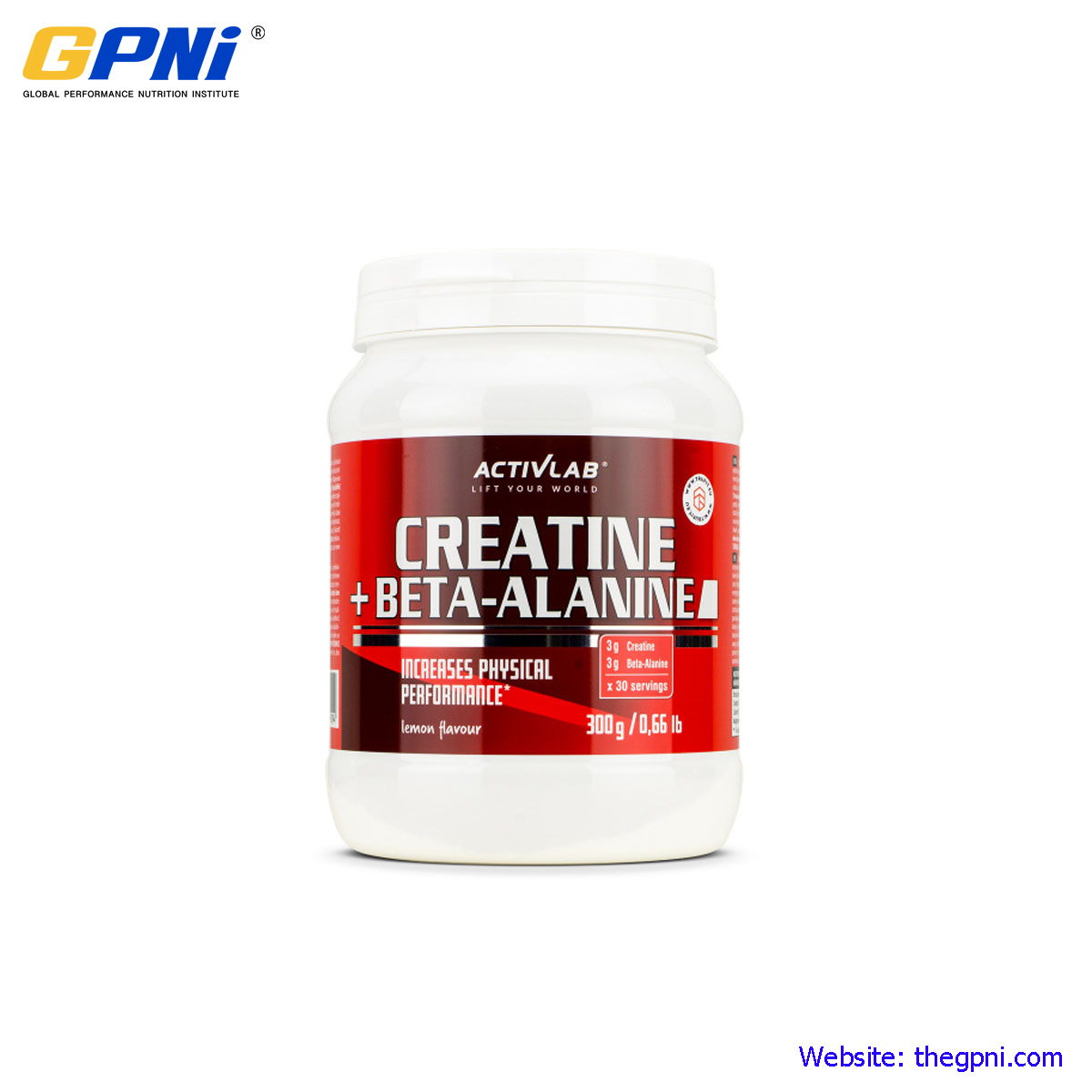
Beta-alanine is a non-essential amino acid made naturally in the body. Today, it has become a popular supplement for performance enhancement among athletes and those interested in fitness. Like creatine, beta-alanine is also naturally occurring amino acid mainly stored in the body’s muscles. Also, like creatine, there is a great deal of quality scientific research on beta-alanine supplementation improving exercise performance. This article will focus on some of the facts and research surrounding beta-alanine and its extreme rise in popularity.
What Exactly is Beta-Alanine?
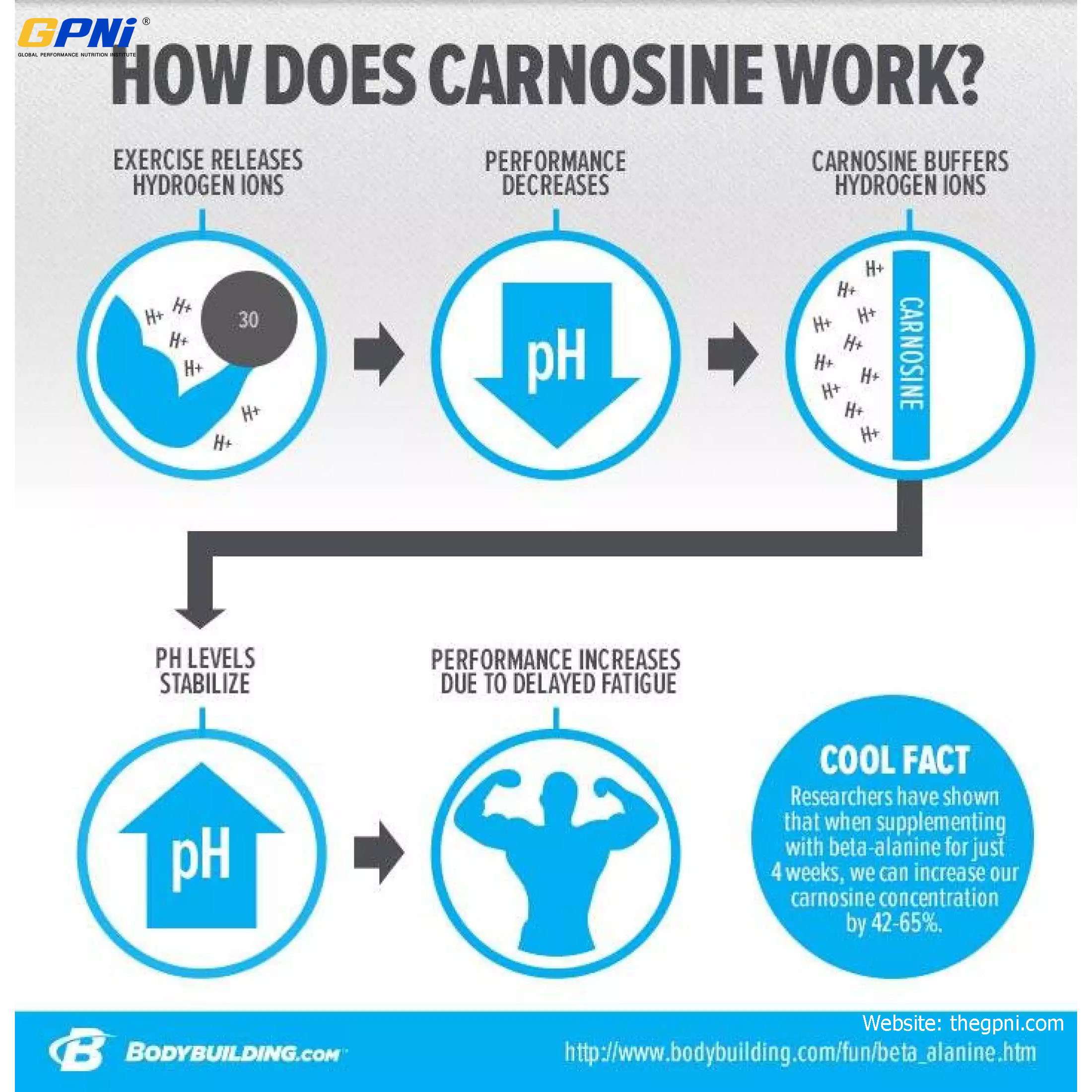
As stated earlier, beta-alanine is a non-essential amino acid produced in the body, primarily in the liver. A non-essential amino refers to an amino acid produced naturally by the body even though it may also be gotten from food. Therefore, beta-alanine may also be supplied to the body through foods such as poultry and meat.
Unlike many other amino acids, beta-alanine does not perform the role of synthesizing proteins. Instead, it assists in the production of carnosine which is stored in the skeletal muscles. It should be noted that carnosine is a compound that aids muscle endurance in high-intensity training through the reduction of the accumulation of lactic acid in the muscles.
Examining Beta-Alanine as A Supplement
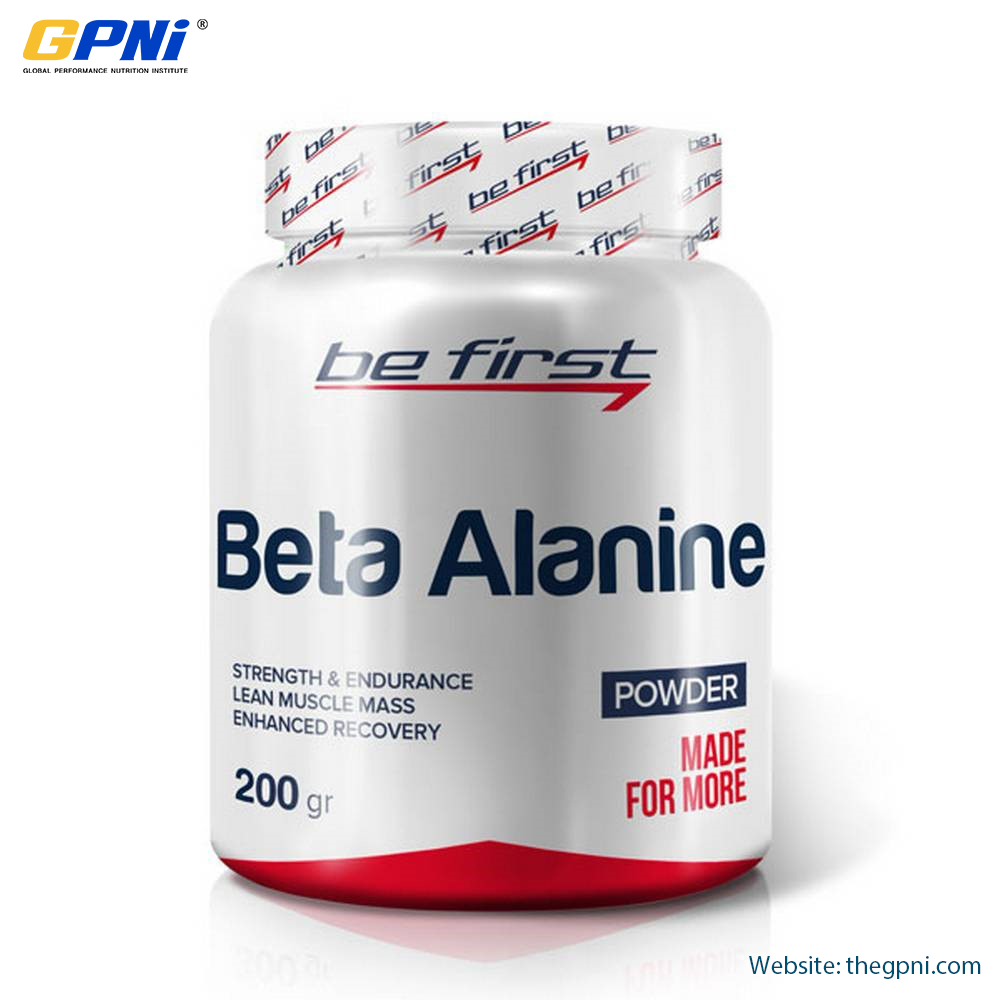
The primary effect of taking beta-alanine supplements is the increase of carnosine levels in muscles by about 80%. The implication of this on athletes’ bodies during exercise and sporting activities is reduction in fatigue and enhancement of endurance levels, therefore improving general performances. This position is supported and confirmed by the ISSN, which stated in the position paper on Beta-Alanine that “by increasing the muscle’s carnosine content, chronic beta-alanine supplementation enhances high-intensity exercise performance.”
Read full details on the ISSN’s position stand here:
Other studies have shown that beta-alanine supplementation may be critical in extending exhaustion time in the performance of high-intensity sporting activities. One such study on cyclists by the National Center for Biotechnology Information revealed that the intake of beta-alanine supplements for four weeks increased the total work done (TWD) of the participants by
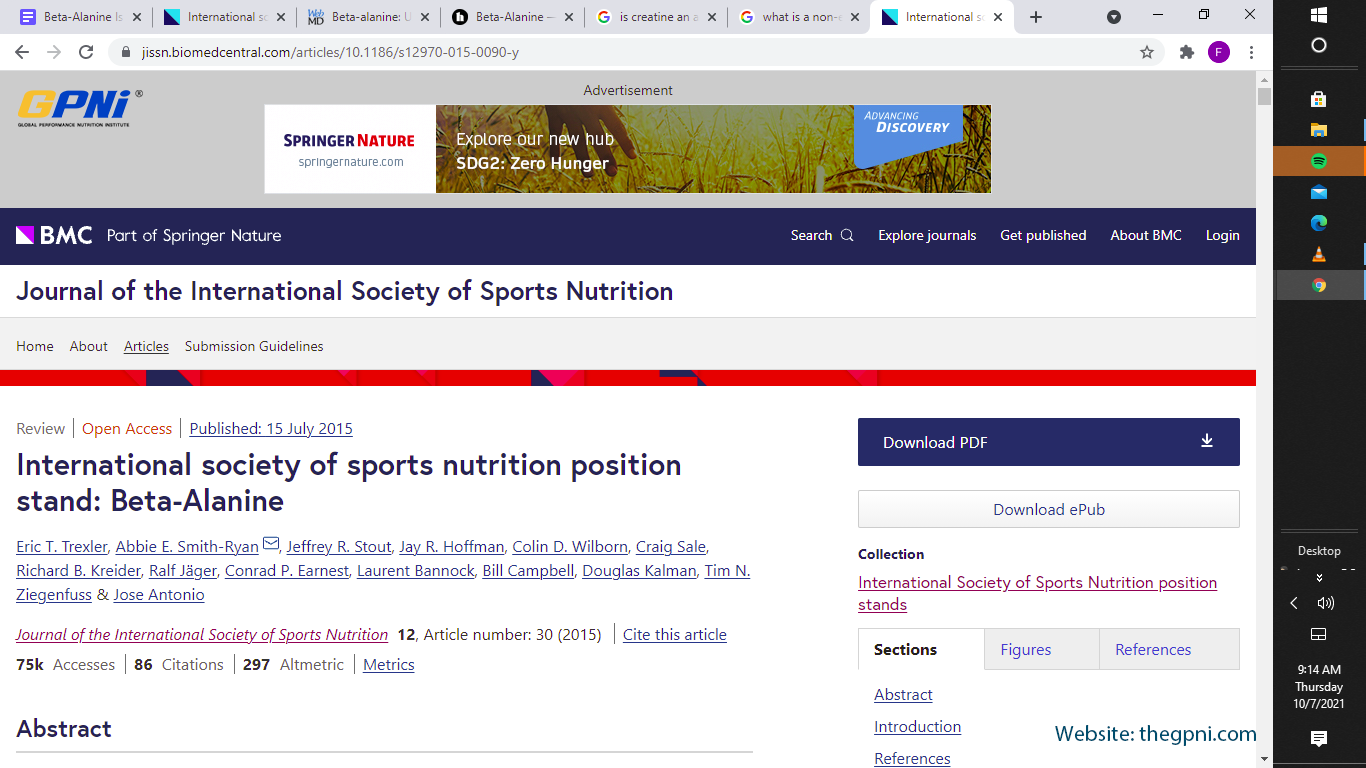
13% and an extra 3.2% after ten weeks. It is important to note that the effect of beta-alanine on carnosine levels and subsequently endurance levels occur both in trained and untrained individuals.
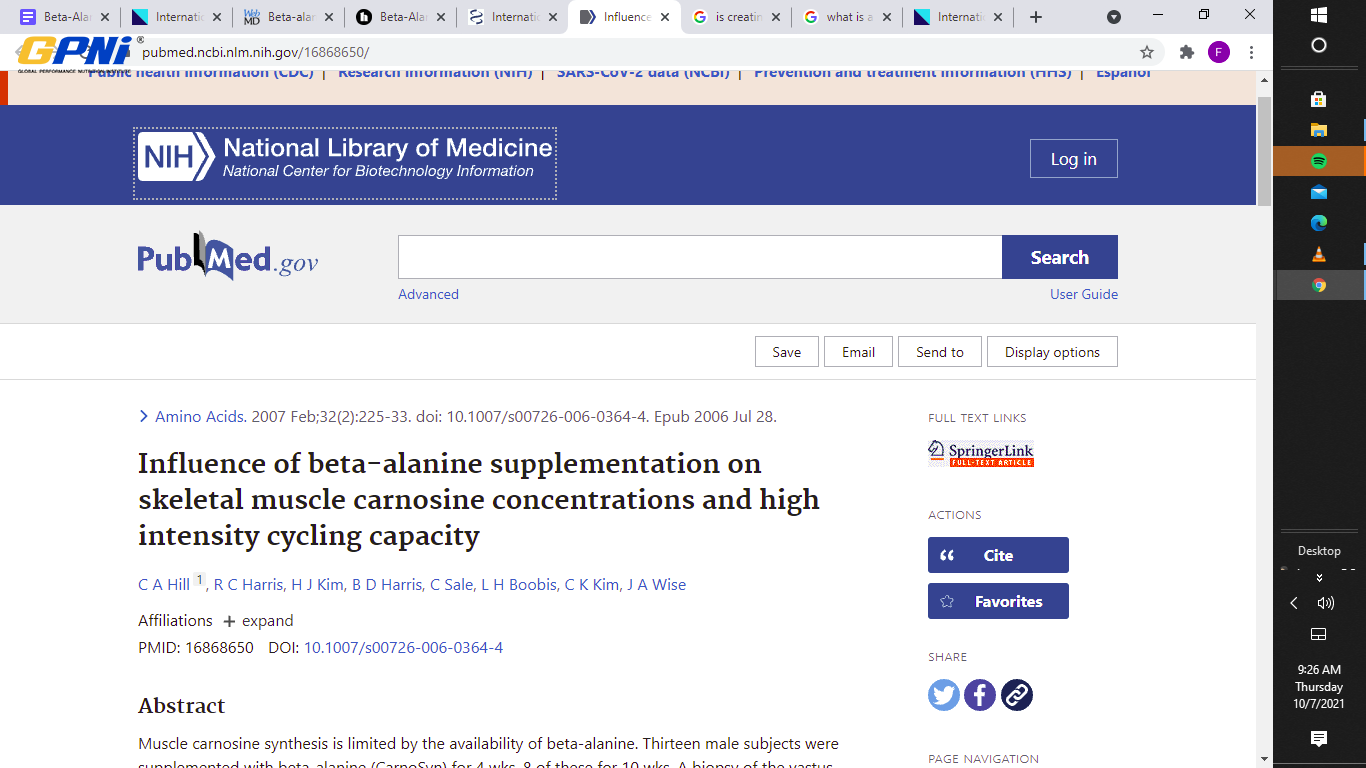
Additional Research
Furthermore, beta-alanine supplementation has been shown to specifically increase muscle endurance in older adults (55-92 years). The National Center for Biotechnology Information conducted a study that revealed that the use of beta-alanine supplements for 90 days might improve physical endurance by delaying the onset of neuromuscular fatigue in older women and men.

Another area of research that experts begin to study is the effect of beta-alanine on tactical athletes and cognitive functions, especially with an emphasis on military personnel. It is reasonably expected that beta-alanine would be advantageous in some of the tasks that military personnel undertake since they deal primarily with endurance tests. A study on military personnel reported in the ISSN’s position stand on the amino acid revealed that while cognitive function was not affected by beta-alanine, the ingredient caused some improvements in peak power and target engagement speed ahead of placebo. The ISSN concluded by stating that initial evidence reveals that beta-alanine has positive effects on military-specific tasks.
What Beta-Alanine Does Not Do
It should, however, be noted that while beta-alanine might be helpful in fatigue and endurance, there is no evidence that it improves the strength of the muscles. The ISSN stated concerning the issue of beta-alanine and strength that “there is no evidence that beta-alanine increases strength during resistance training, but it does appear to increase training volume.”
What To Use Beta-Alanine With For Maximum Results
It should be noted that beta-alanine is also combined, many times, with other sports supplements such as creatine and sodium bicarbonate. Several studies have been carried out to see the effect of these combinations. One such study conducted by the National Center for Biotechnology Information on the impact of beta-alanine and creatine supplementation on power athletes revealed that creatine plus beta-alanine supplementation is efficacious on strength performance. In the study, participants were randomly attached to a placebo (P), creatine plus beta-alanine (CA) or creatine (C) supplementation group. After a ten-week resistance training program, the creatine plus beta-alanine group showed the most significant impact on lean tissue accumulation and body fat composition.
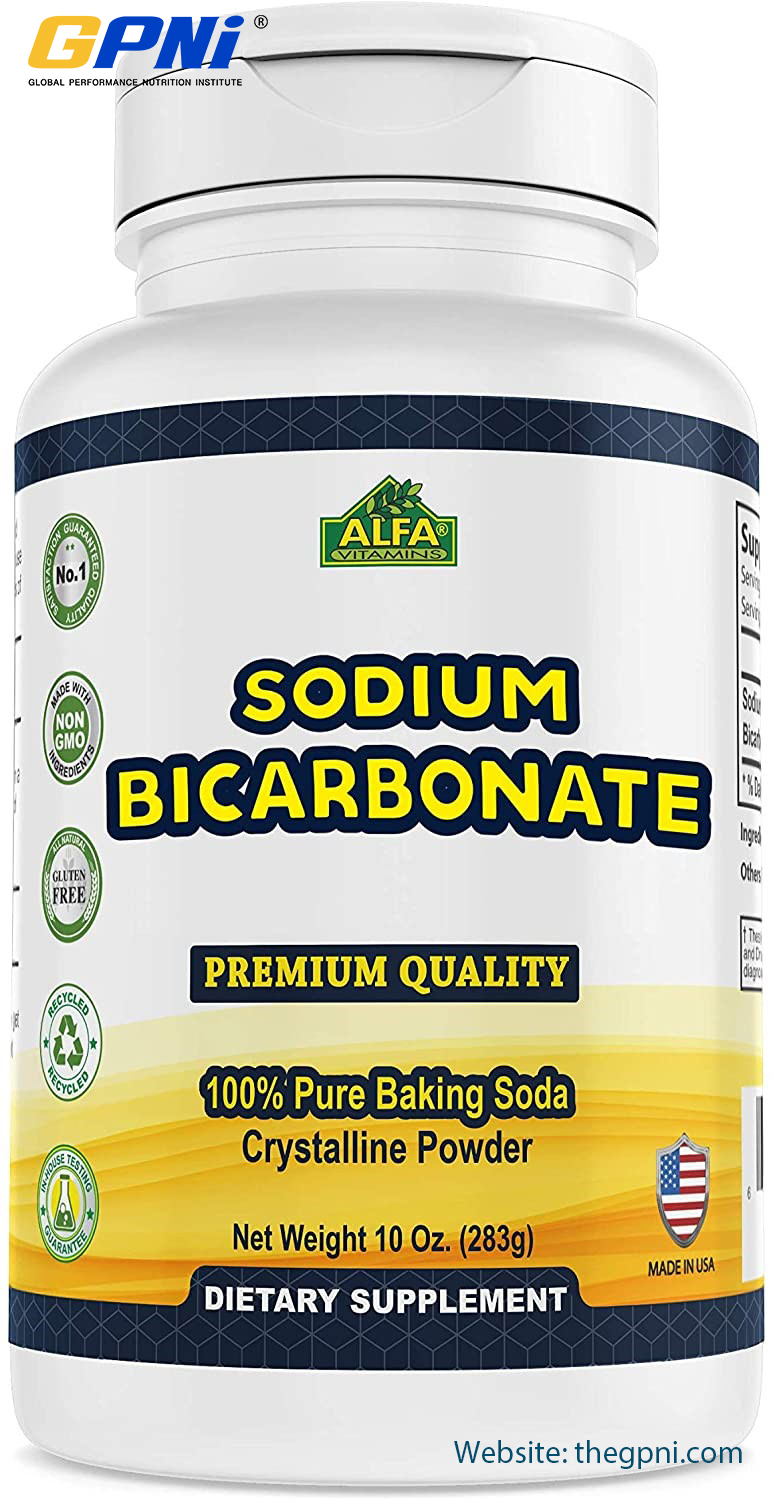
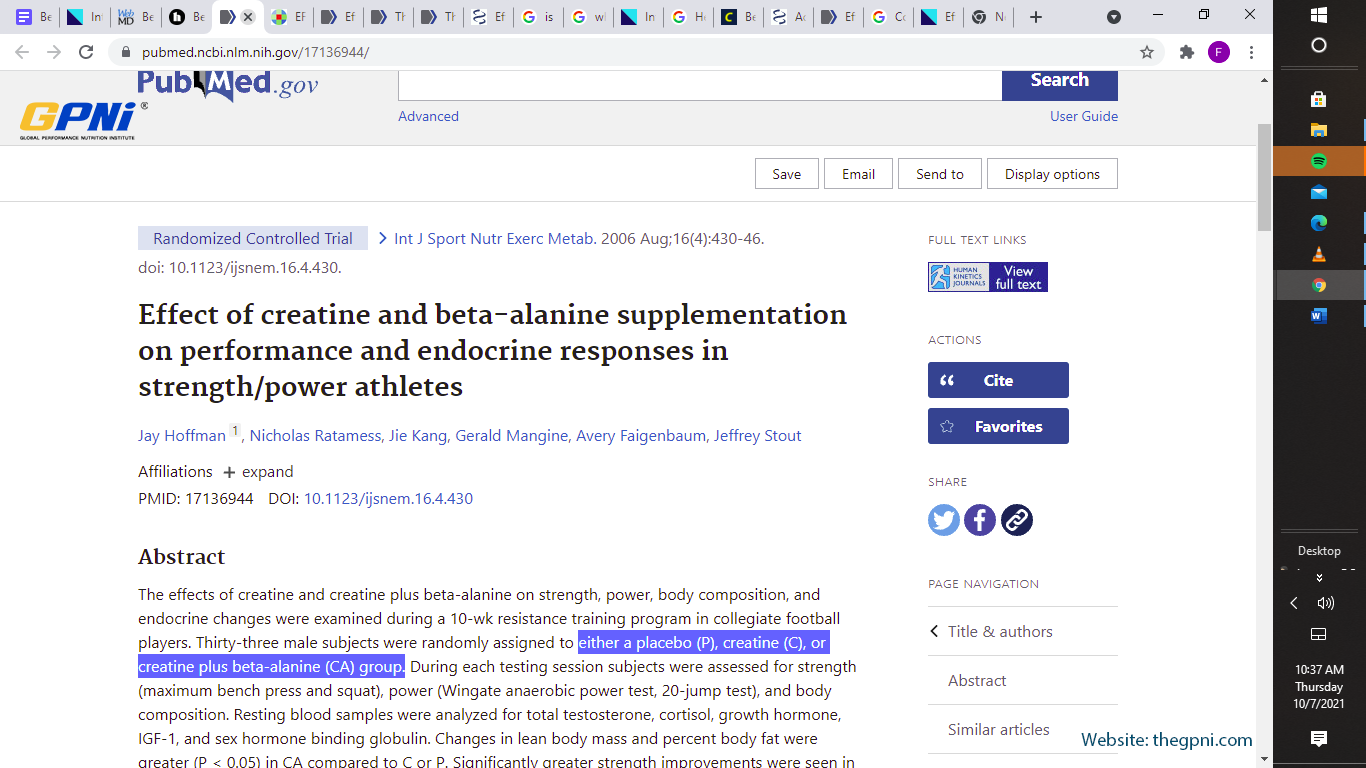
Furthermore, the ISSN, in its position paper on beta-alanine, referred to a study on the effect of beta-alanine plus sodium bicarbonate (SB) supplementation. This study’s results indicated that beta-alanine supplementation alone enhanced performance at 110 % of maximal power output during a cycling test. In contrast, beta-alanine plus SB was more likely to have an additive effect than beta-alanine alone.
Other Health Benefits of Beta-Alanine
We often get asked questions at the GPNi® about beta-alanine and should you use it to enhance exercise. The answer to this is that the results are considered by many experts to be conclusive.

Beta-alanine is responsible for increasing carnosine levels, and carnosine seems to possess certain health benefits. However, most of these health benefits have not been tested in humans, so further studies are still needed. Many studies thus far have only been tested in animal and in vitro models. These health benefits include immune-boosting properties, anti-ageing and antioxidant properties. These make beta-alanine potentially capable of providing health benefits to the body through increase in carnosine.
Comparing Beta-alanine with Creatine: Similarities and Differences
Both amino acids are popular among athletes, and the scientific community has approved their effects on enhancing performances during exercise and sporting activities. Therefore, we have decided to examine how they are similar to each other and how they differ from each other.
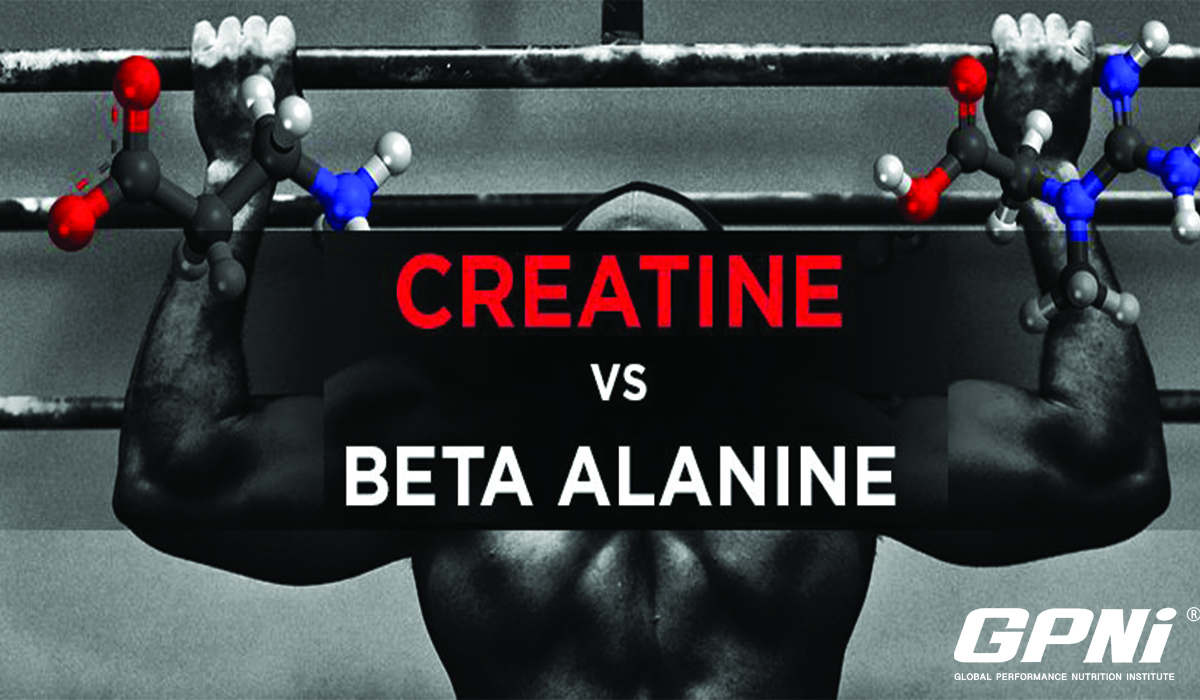
How are they similar?
One similarity is that a loading phase is required for both of them. Furthermore, Beta-alanine takes more than one dose to reach muscle saturation levels, just like creatine. They can also both be derived from animal proteins such as beef, and lastly, they have both been declared safe by scientists, including those at the ISSN.
How are they different?
The first difference between them has to do with their history and timeline of popularity. Creatine had achieved notoriety in the 1990’s, and researchers had begun studies on its effect and safety long before the more recently discussed beta-alanine. Another difference has to do with their specific effect on the body. While creatine increases ATP, which directly fuels muscles and supplies short spurts of power, beta-alanine makes lactic acid less effective at building up, thereby enhancing endurance.
Lastly, they have different molecular structures. For example, while beta-alanine is a single amino acid, creatine comprises three amino acids; arginine, glycine and methionine.
Dosage Recommendations for the Intake of Beta-Alanine
The ISSN states that daily supplementing with beta-alanine (4-6 g) for at least 2 to 4 weeks improves exercise performance. It is also recommended that beta-alanine be taken with meals for even improved effectiveness.
How are they similar?
Generally, the intake of beta-alanine is deemed to be safe. The only reported side effect of beta-alanine is paraesthesia, which occurs when there is an excessive intake of the amino acid. Paresthesia refers to a strange sensation of tingling or pricking that is felt on the skin, usually on the neck, face or at the back of the hand. This sensation can be reduced by taking lower doses of beta-alanine, about 800mg at a time would be appropriate.
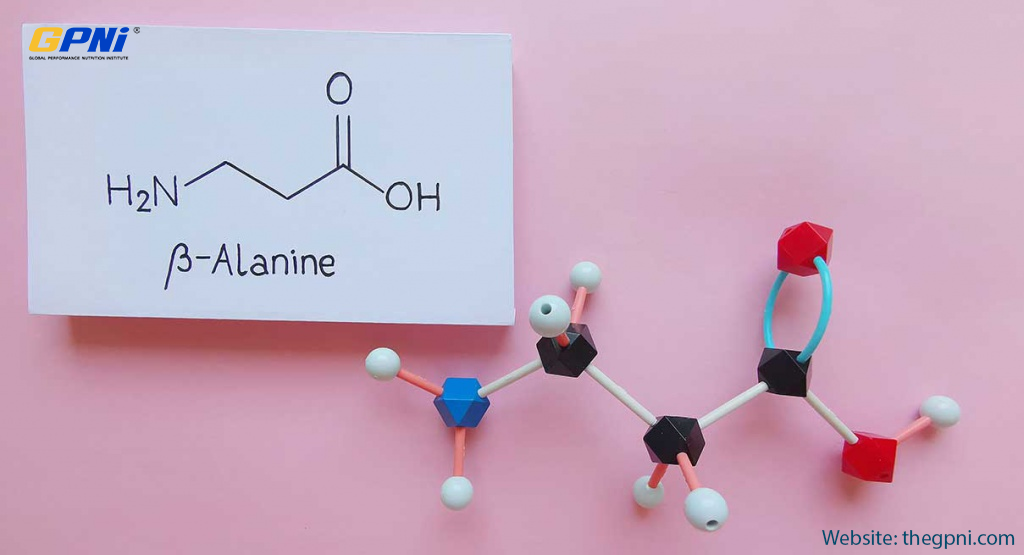
In animals, beta-alanine intake also affects taurine concentrations in the body. This is because beta-alanine and taurine are transported to the skeletal muscle by the same transporter (Tau-T). It has been demonstrated that beta-alanine decreases circulating taurine levels by 50 per cent in animal models. However, the ISSN reports that there is no evidence that this occurs in humans.
Conclusion
Beta-alanine supplementation, like creatine’s, aids in the enhancement of sporting and exercising performances. It does this by increasing carnosine levels and reducing fatigue. While it has become popular with athletes, it is essential to keep in mind that it is inconclusive whether it improves strength. However, its clear scientific truth is that it lowers the speed of exhaustion and fatigue.
To learn more about Beta-alanine supplementation, and other sports nutrition aids and the patented “traffic light system” by the GPNi®.
• Green – Good & Solid Research
• Orange – Some Limited Research But Not Considered Harmful
• Red – No Solid Research And Maybe Some Health Concerns

Learn what to safely recommend to your clients, athletes and yourself and get certified today with the Sports Nutrition Specialist (SNS®) international certification on the GPNi® platform.

You can also choose one of our Continued Education Certificate programs, such as the Endurance & Marathon Nutrition Coach (EMNC®) certificate program.
References
– https://jissn.biomedcentral.com/articles/10.1186/s12970-015-0090-y/figures/1
– https://www.ncbi.nlm.nih.gov/pmc/articles/PMC4501114/
– https://www.webmd.com/vitamins-and-supplements/beta-alanine-uses-and-risks
– https://www.healthline.com/nutrition/beta-alanine-101#athletics
– https://www.carnosyn.com/blog/beta-alanine-vs-creatine-a-comparison/
– https://swolverine.com/blogs/blog/creatine-vs-beta-alanine







